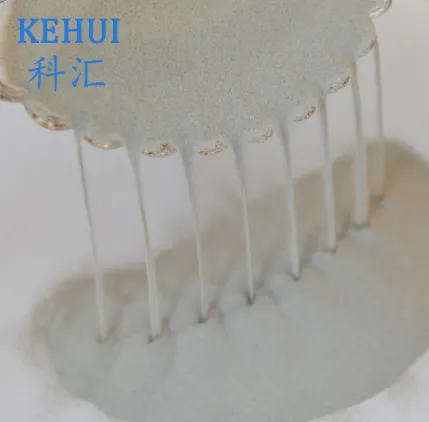Expanded clay is a versatile and popular growing medium in modern gardening, especially in hydroponic systems. Known as hydroponic clay pebbles, hydroponic expanded balls, or hydroponic clay pellets, these lightweight, porous aggregates provide excellent aeration and drainage for plant roots. Whether you're a beginner or an experienced gardener, understanding how to use gardening clay pebbles can significantly improve your plant growth and yield. This guide explores their benefits, applications, and best practices to help you make the most of this innovative growing medium.

Hydroponic Clay Pebbles: The Ideal Growing Medium
Hydroponic clay pebbles are a staple in soilless gardening due to their excellent water retention and root support. These small, round pellets are made by heating clay at high temperatures, causing it to expand and form a porous structure. This unique composition allows them to hold moisture while providing ample oxygen to plant roots. Unlike soil, hydroponic clay pebbles prevent compaction, ensuring healthy root development. They are reusable, pH-neutral, and resistant to mold, making them a sustainable choice for hydroponic systems, aquaponics, and even traditional container gardening.
Hydroponic Expanded Balls: Enhancing Root Aeration
One of the key benefits of hydroponic expanded balls is their ability to promote superior root aeration. The porous nature of these balls creates air pockets that deliver oxygen directly to the roots, preventing waterlogging and root rot. This makes them ideal for deep water culture (DWC) and ebb-and-flow hydroponic systems. Additionally, hydroponic expanded balls provide stability for plants, ensuring they remain upright as they grow. Their lightweight nature also makes them easy to handle, reducing strain on hydroponic setups while maximizing plant health and productivity.
Hydroponic Clay Pellets: Versatility in Gardening Applications
Hydroponic clay pellets are not limited to hydroponics—they can be used in various gardening setups. These pellets work well as a top dressing for potted plants to improve moisture retention and reduce evaporation. They are also excellent for mixing into soil to enhance drainage and aeration. In aquaponics, hydroponic clay pellets serve as a biofilter media, hosting beneficial bacteria that convert fish waste into plant nutrients. Their versatility makes them a must-have for gardeners looking to optimize plant growth in different environments.
Gardening Clay Pebbles: Sustainable and Reusable
A major advantage of gardening clay pebbles is their reusability, making them an eco-friendly choice. After harvesting, simply rinse and sterilize the pebbles to remove any residual roots or debris, and they’re ready for reuse. Unlike organic substrates that break down over time, gardening clay pebbles maintain their structure for years, reducing waste and cost. They are also inert, meaning they won’t alter the pH of your nutrient solution, ensuring consistent growing conditions for your plants.
About Hydroponic Clay Pebbles FAQS
If you're considering using hydroponic clay pebbles, hydroponic expanded balls, or hydroponic clay pellets, you likely have some questions. Below, we address common queries to help you make an informed decision and get the best results from your gardening clay pebbles.
What are the main advantages of using hydroponic clay pebbles?
Hydroponic clay pebbles offer excellent drainage, aeration, and root support. They are pH-neutral, reusable, and resistant to mold, making them a durable and low-maintenance growing medium for hydroponics and other gardening methods.
Can hydroponic expanded balls be used in soil-based gardening?
Yes! Hydroponic expanded balls can be mixed into soil to improve aeration and drainage. They also work well as a mulch layer to retain moisture and regulate soil temperature.
How do I clean and reuse hydroponic clay pellets?
To reuse hydroponic clay pellets, rinse them thoroughly to remove old roots and debris. Soak them in a mild bleach solution or hydrogen peroxide to sterilize, then rinse again before reuse.
Are gardening clay pebbles suitable for all types of plants?
Gardening clay pebbles are ideal for most plants, especially those that thrive in well-aerated conditions, such as herbs, leafy greens, and tomatoes. However, plants that prefer dense, moisture-retentive soil may need additional amendments.
Where can I buy high-quality hydroponic clay pebbles?
You can find premium mica flakes for sale on this website https://www.kehuimica.com/, which also offers hydroponic clay pebble and other specialty materials for industrial and craft applications.
Whether you're growing plants hydroponically or enhancing traditional gardening methods, hydroponic clay pebbles, hydroponic expanded balls, and hydroponic clay pellets offer unmatched benefits. Their ability to improve aeration, drainage, and root health makes them a valuable addition to any gardener’s toolkit. By understanding their uses and maintenance, you can harness the full potential of gardening clay pebbles for healthier, more productive plants. Start incorporating them into your gardening routine today and experience the difference!
-
The Versatile World of Phlogopite Mica: Properties, Forms, and ApplicationsTin tứcJul.14,2025
-
The Versatile Applications of Calcined Mica: From Decoration to Industrial UseTin tứcJul.14,2025
-
The Role of Muscovite Mica in Industrial Insulation MaterialsTin tứcJul.14,2025
-
The Benefits of Using Expanded Clay Pebbles in Hydroponics and Soil GardeningTin tứcJul.14,2025
-
Innovative Applications of Mica Flake in Paints and CoatingsTin tứcJul.14,2025
-
The Use of Natural Mica Powder in Skincare ProductsTin tứcJun.11,2025
-
The Role of Clay Pebbles in Soil AerationTin tứcJun.11,2025








